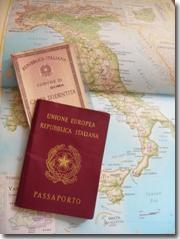Italy’s recent changes to citizenship laws pose a threat to the descendants of Holocaust survivors seeking citizenship. Many fear that new restrictions could jeopardize their claims, raising concerns about the implications for justice and historical redress.
Browsing: historical context
Jon Stewart faced backlash after suggesting that without U.S. economic influence, Germany might revert to its Nazi past. Critics argue his comments oversimplify complex historical dynamics and ignore the strong democratic foundations of modern Germany.
In an era of increasing globalization, Canadians and Americans remain distinct in their cultural identities. This op-ed explores fundamental differences, from healthcare approaches and social policies to attitudes towards multiculturalism and community values, shaping their unique national identities.
In the 1930s, a bold movement sought to merge the US, Canada, and Greenland, envisioning a unified North America. This initiative highlights historical aspirations for regional cooperation, echoing modern discussions on trade, environmental challenges, and cultural ties.
Israel’s intricate relationship with Russia may gain traction if Trump resumes the presidency. As geopolitical dynamics shift, Chatham House suggests that Trump’s approach could enhance strategic cooperation, influencing regional stability and security.
France has issued a symbolic call for the return of the Statue of Liberty to its European roots, emphasizing its significance as a beacon of freedom. However, experts suggest that political, cultural, and legal complexities make such a restoration unlikely.
As perceptions shift, Canadaﻗs traditional alignment with US exceptionalism is diminishing. This trend reflects growing skepticism about American values and policies, prompting Canada to seek a more independent global stance and redefine its own national identity.
“How the film Iﻗm Still Here forces Brazil to face a dictatorshipﻗs legacy – Al Jazeera English” explores the emotional impact of the documentary. It challenges audiences to confront the lingering scars of Brazil’s military rule and the unresolved trauma affecting society today.
In “The Leopard,” Giuseppe Tomasi di Lampedusa deftly critiques the super-rich and their strategies for maintaining power. Through the story of a Sicilian prince, the novel reveals the elite’s manipulation of societal change to safeguard their privileges, offering timeless insights into wealth and class.
In the complex tapestry of Franco-American relations, France’s strategic foresight in supporting the American Revolution ultimately laid the foundation for a resilient partnership. This article explores how France’s calculated actions shaped a shared future, proving beneficial for both nations.










